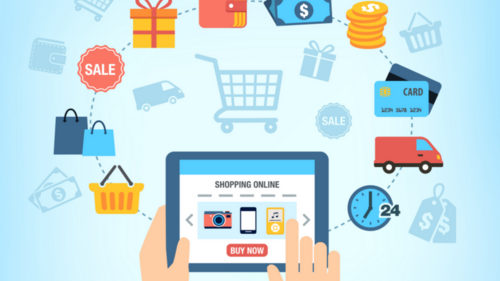-
Like most online buyers, Genevieve is price-sensitive and a bargain hunter. As such, she sometimes searches without intending to close deals. “Acquainting myself with prices helps me budget for the time I will be ready to spend money,” she says.
Genevieve is only one in a growing list of Kenyan cybershoppers.
Slightly over a decade ago, online shopping was a remote concept to most Kenyans. It was also considered a territory for Kenyans with a fat disposable income. Not so today.
Whether you wish to buy a premium product from an overseas retailer to gift a friend or furniture for your house from a workshop in a different county, or simply to order lunch from a restaurant two blocks away from your office, doing so online is the easiest and most convenient way.
Similarly, with a smartphone, a network connection and a few items to sell, you can now become an online trader. Being a trader has never been easier.
Technology has opened up the business space for both sellers and buyers. In Africa, Kenya ranks third in terms of the volume of goods shopped online, bettered only by Nigeria and South Africa.
I love unique designs, which I can get online at a fair price. I buy mostly from overseas suppliers because price comparisons between different suppliers is easier, Genevieve adds.
 votre commentaire
votre commentaire
-
Online retailers are engaged in a constant, all-consuming quest to make the process of buying stuff ever faster and more efficient and to remove as many barriers between you and the final click-confirmed purchase as possible. Amazon has experimented with IRL ‘dash’ buttons that automatically order you more detergent or diapers. Smaller retailers like Blue Bottle have pushed subscription models that let you elect to have your coffee delivered monthly.
So it should hardly come as a surprise that marketers are beginning to push something closer to full-blown automated shopping wherein retailers simply send you goods you might want based on your past preferences, without you ever having to do anything so laborious as clicking buttons on menus on a website. According to the latest market research, this is exactly what a lot of consumers say they want.
A new report from the marketing technology company Blis claims that 60 percent of the consumers they surveyed are receptive to automated shopping. Some 41 percent would let an online retailer automatically buy and ship them things like dish soap and cleaning products. Over 20 percent would let retailers’ systems pick out their underwear.
Now, this kind of market research is often not exceedingly scientific, but this report does offer an intriguing glimpse at where online shopping trends are probably headed. It’s not surprising that people would want to turn over the process of shopping for necessities to automated shopping services, and it’s not hard to see companies offering programs that minimally remix your biweekly grocery orders like a daily Spotify mix, or push to auto deliver your socks in the mail twice a year or whatever.
Some of this does seem surprising isn’t the whole point of picking out jewelry or accessories to cut a style that’s distinctly yours but then again, not. If the price is right, at least there will be another one along in the mail soon.
 votre commentaire
votre commentaire Suivre le flux RSS des articles
Suivre le flux RSS des articles Suivre le flux RSS des commentaires
Suivre le flux RSS des commentaires

